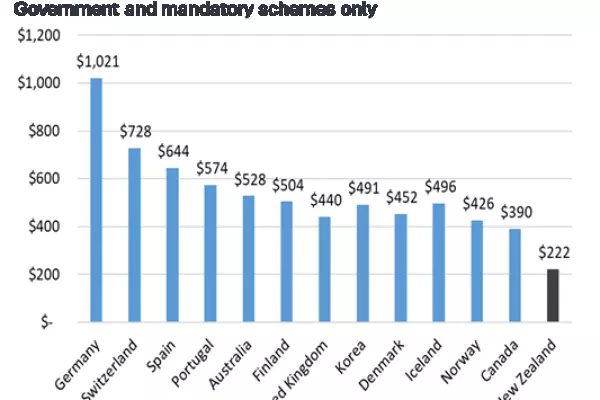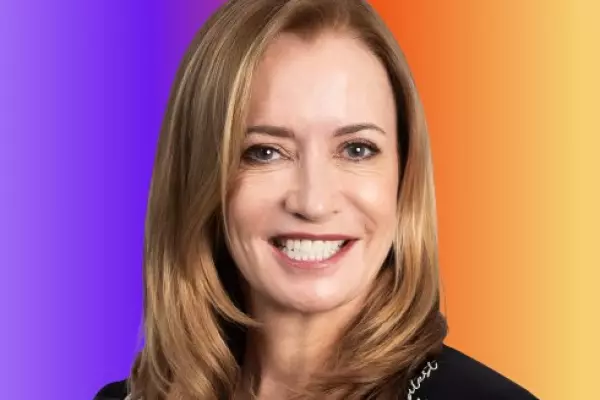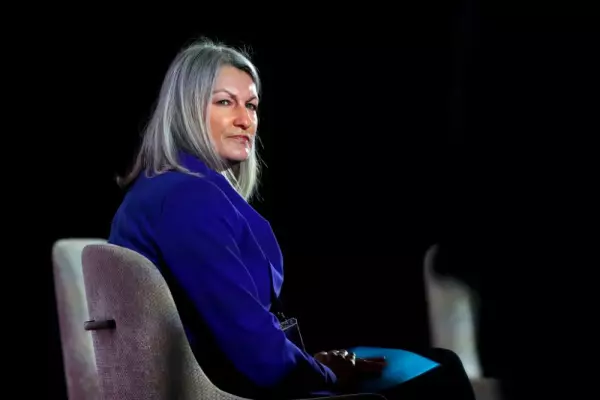BusinessDesk's investment editor, Frances Cook, responds to readers' emails on a weekly basis to answer various questions about money. Below you'll find her expert advice on a subject she's extremely passionate about.
Dear Frances,
I know that investing and tolerance for the ups and downs is personal. I personally have a reasonably high appetite for risk. I’m nearly 27, in a job with good security which pays me reasonably well.
Over the last year, I’ve been learning more about investing (with thanks to you and your first book) and have switched my KiwiSaver to a provider with much higher returns. I am now ready to start investing some of my extra income and have decided on investing in an index fund.
I was ready to set it up but paused and thought about the state of the world and thought, is this the wisest thing to do right now?
I know that in the grand scheme of things I will have my investment for a reasonable amount of time and with that will come ups and downs. But with covid, the war in Ukraine, and experts expecting a downturn, is it silly to start now and worth waiting to buy in during the drop?
Thanks again for making financial literacy more accessible for us all, especially women!!
K
Hi K,
I hear you – it looks gnarly out there. And honestly, this year is likely to be a rough one for the markets. War in Ukraine, huge parts of China in lockdown (including their manufacturing centres and ports), inflation shooting up around the world. It’s probably going to be a white-knuckle ride for many investors.
As you say, for those of us just getting started, it could be a good thing right? ‘Buy the dip’ tells us that at times like this, good companies can suffer a fall in share price simply because the overall economy is having a rough time. If you buy in when the company is going cheap, it’s easier to make money later, when the share price bounces back.
I agree with all of that. The problem is in trying to pick when it is happening.
Ideally, all of us would buy shares when they’re at their cheapest and sell when they’re most expensive. If we had a crystal ball, that would be a sure-fire way to get rich.
The problem is that it’s extremely difficult to do that with any sort of accuracy. Even expert fund managers struggle to do it. And if you get it wrong, you usually walk away with far less money than if you’d just stuck your money in the market and not thought about it too much.
A recent Bank of America study looked at share market data all the way back to 1930.
Their big takeaway? If you missed the S&P 500′s 10 best days each decade, the total return would stand at 28%. But if you just stuck around through all the ups and downs, the return would have been 17,715%.
That shows the impact of waiting on the sidelines for the perfect moment. We usually miss them, because it’s only obvious when the perfect moment was when it’s already in the rearview mirror. Meanwhile, just getting cracking can give you a great result.
It’s fantastic that you’ve started investing, and I’m very happy to hear that my book gave you the confidence to get started. As you will have already seen with your KiwiSaver, it really does make a big difference!
Personally, I have an auto payment that goes straight in the day after I’m paid, no matter what. That means I catch the market when it’s up, when it’s down, and when it’s somewhere in between.
I keep an eye on the markets for work, and I still couldn’t accurately tell you when we’re truly at the bottom of a price drop.
Even if I could, the benefit would usually be small. Meanwhile, the price for waiting on the sideline and trying to get perfect timing is usually steep.
Don’t let analysis paralysis stop you from taking the next step with your money. If you’re ready to invest, the best strategy for most of us is simply to start.
If you’re feeling a bit nervous, starting small with even $5 after each pay will help you get a feel for how things work, without putting too much on the line.
Get more money info when you listen to Frances Cook's Cooking the Books podcast here:
Hi Frances,
I have a question for you and will appreciate your time in this.
I have two daughters, ages 10 and 8. I want them to be financially educated. Can you recommend some ways I can educate them well with minimum time?
Perhaps some video courses or books that will get them to the highest levels of stocks and bonds?
Regards,
S
Hi S,
It’s great that you want to give your daughters the gift of understanding money. There are a few good options, which means you have the luxury of picking which one works best for your family.
First up, there’s the Sorted in Schools programme. I’m a big fan of this one. They have free resources that schools can use as part of the curriculum. It covers all sorts, including debt, investing, KiwiSaver, and tax.
Your school may or may not already know about it. Get in touch and ask if they use it and if they’d be willing to try it out. You can find more info about it here.
If your school isn’t keen (and fair enough, many teachers are already pretty swamped) you can still give it a crack on your own. The Sorted Student Hub has a section where your kids can learn without a teacher. Check it out here.
There’s also the Banqer site, which teaches kids about income, tax and KiwiSaver through online simulations. It’s sponsored by KiwiBank to make it free for primary and intermediate kids.
There are also high school modules, although I believe there’s a cost to those. Their website is vague about how it costs, but it do offer a seven-day free trial.
If they want to try out these new skills to learn more about investing, the New Zealand Stock Exchange (NZX) has a neat virtual trading option which you can find here. It mirrors the real share market, and lets you trade, but with fake money, so you can see how your decisions would have gone if you did invest. Maybe a good one for a little sibling rivalry – who can make the wisest investing decisions? They also have more educational resources on that site.
If you’re after a book, you can’t go wrong with the best-selling Barefoot Investor for Families. This one would be for you to read, but I’ve heard so many parents sing the praises of it, I think it must be worth it. Just remember that the author is Australian, so some of the advice around things like property needs a little tweak to work in New Zealand.
If any other parents have resources they used to teach their kids about money, I’d love to hear from you.
Send questions to [email protected] if you want to be featured in the column. Emails should be about 200 words, and we won't publish your name. Unfortunately, Frances is not able to respond to every email received, or offer individual financial advice.
Information in this column is general in nature, and should not be taken as individual financial advice. Frances Cook and BusinessDesk are not responsible for any loss a reader may suffer.















